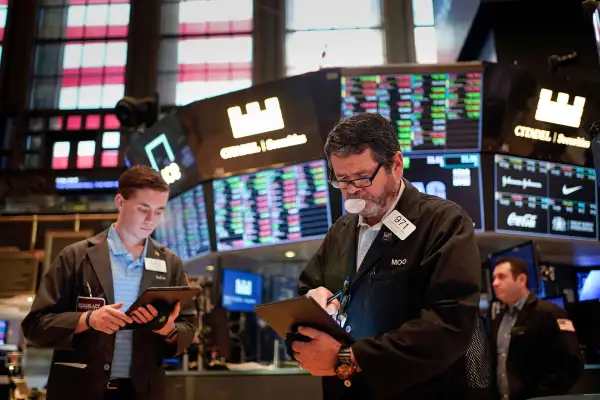Will the Bear Market Continue? 6 Experts on What's Next for Stocks
Money is not a client of any investment adviser featured on this page. The information provided on this page is for educational purposes only and is not intended as investment advice. Money does not offer advisory services.

Investors have had a nail-biting ride in the stock market this year. The S&P 500 index fell into a bear market in June, a 20% dip from its previous high, and threw a bucket of cold water on two years of unusually robust growth and profits.
Stocks have since rallied: Early last week, all three major indices notched their biggest one-day percentage gains since June 24. But there’s no guarantee those gains are here to stay.
The economy remains in highly uncertain territory: Inflation keeps rising despite the Federal’s Reserve’s attempts to keep prices under control by raising interest rates, the housing market keeps getting more expensive as mortgage rates soar, and sectors of the stock market that have thrived over the two years — think tech companies and work-from-home stocks like Zoom and Peloton — are no longer performing as they once did.
As earnings season (when publicly traded companies release information to shareholders about their performance in the previous quarter) kicks off, investors are watching closely for clues about the state of the economy and the likely trajectory of the stock market over the next few months. Will there be another recession, or not? Will stocks keep falling?
Here’s what experts are saying about what could be next.
A recession could be around the corner
Citing a prolonged stretch of higher inflation and the aggressive policy response by the Fed, analysts at the Wells Fargo Investment Institute say investors should brace for a downturn.
“We are calling for a moderate recession that likely begins soon and lingers into the middle portion of next year,” Scott Wren, senior global market strategist, wrote in a research note on Wednesday. We might even be in a technical recession already, Wren writes, which is defined as two consecutive quarters of negative GDP growth, but we won’t know for sure until the government releases its official GDP data later this month.
Morgan Stanley puts the odds of a recession within the next year at 36% and climbing, citing more jobless claims and fewer job openings, while others have taken a more optimistic view.
“We continue to expect the economy to slow meaningfully but avoid a 2022 recession,” writes Katie Nixon, chief investment officer for Northern Trust Wealth Management. Nixon says the economy hasn’t contracted enough, and the labor market hasn’t taken enough damage, to warrant calling the current downturn an official recession.
Stocks could fall further
Investors probably shouldn’t get too comfortable after the stock market’s rally last week.
“Make no mistake,” a team of Morgan Stanley analysts wrote. “We don't believe this bear market is over, even if we avoid a recession.”
The analysts, led by Chief U.S. Equity Strategist Michael Wilson, say stocks aren’t likely to grow as much over the next year as companies grapple with inflation, which is making a serious dent in their bottom lines. Rising interest rates and waning consumer confidence also pose a risk to corporate profits. Northern Trust’s Nixon says continued tightening by the Fed or a loss of investor confidence surrounding a disappointing earnings season could also push stocks lower.
Jeremy Grantham, cofounder of investment firm GMO, has taken a more extreme view: “It’s likely that there will be considerably more pain before this is finished,” he said in a recent interview with the Associated Press. Grantham said the downturn could last another six months to three years, noting that the timing of a market bottom is notoriously difficult to predict.
More volatility ahead
Recession or not, investors should be prepared for a rocky ride in both the stock and bond markets for the remainder of the year.
“As the Fed continues with its aggressive approach to curb inflation and markets digest every economic release with fervor, there’s no doubt fixed income will experience bouts of heightened volatility, as will equities,” writes Peter Essele, head of portfolio management for Commonwealth Financial Network, in a blog post last week.
Volatility is a measure of the magnitude of price swings in the stock market — the larger and more frequent the swings, the more volatile the market.
Thankfully, some experts say that while volatility will remain elevated, the situation is already improving. In a research note last Thursday, Goldman Sachs analysts led by Rocky Fishman point out that market volatility in July is already significantly lower than it has been over the past few months. The analysts say they expect volatility to remain “above-average but far from extreme.”
While volatility can be scary for investors, it’s a normal part of the market and shouldn’t prompt you to make big changes in your investment strategy.
Stocks Are Rallying. Does That Mean the Bear Market Is Ending?
How Inflation Should (and Shouldn't) Change Your Investing Strategy
Don't Skip Your Mid-Year Investment Portfolio Checkup This Year
